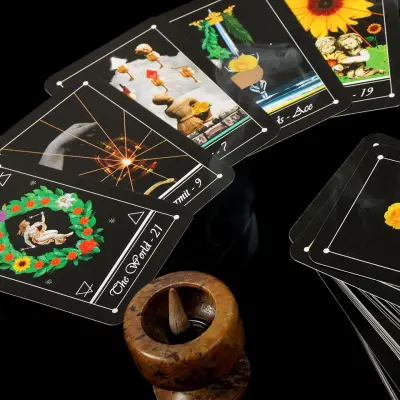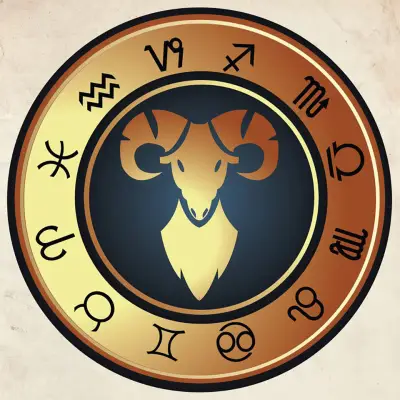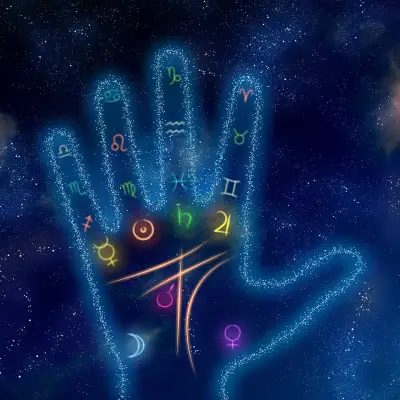Have you ever wondered if there is more to human perception than meets the eye? Extrasensory perception (ESP) explores this fascinating possibility. Many people are intrigued by the idea of perceiving beyond the five senses, seeking to understand the potential of the human mind. Whether you’re a sceptic or a believer, exploring ESP can be an exciting journey into psychology and sensory perception.
Jump to:
Understanding Sensory Perception
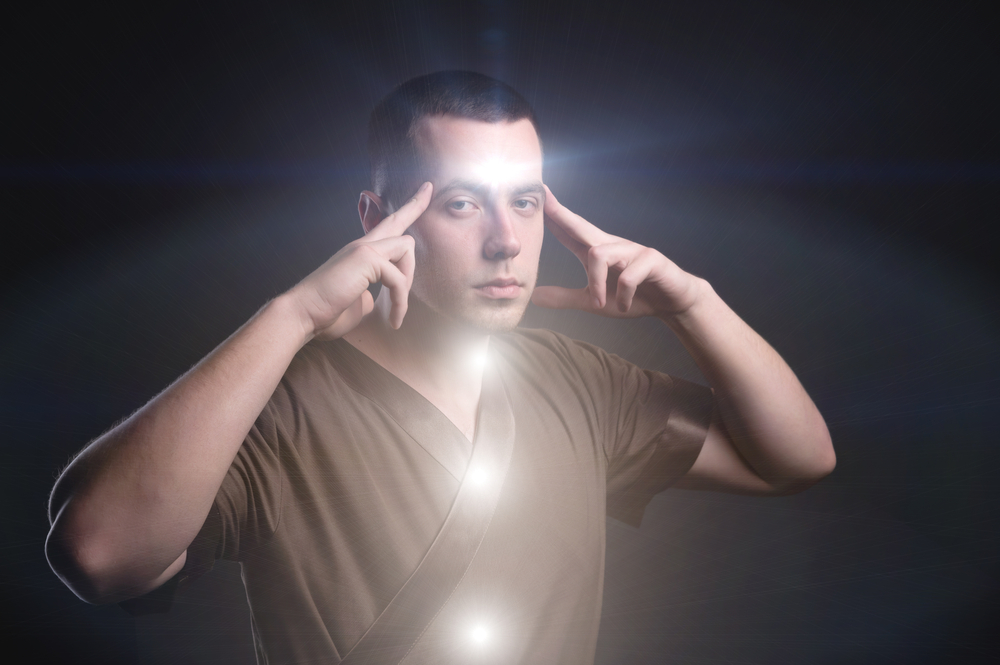
Understanding sensory perception is important before learning about ESP. Sensory perception refers to how we receive and interpret information from our surroundings through our five senses: sight, hearing, touch, taste, and smell. This process involves the sensory organs sending signals to the brain, which then makes sense of these signals, helping us navigate the world around us.
What is Extrasensory Perception (ESP)?
Extrasensory perception, or ESP, refers to the ability to gain information without using the known senses. This concept suggests that some people can receive information directly through the mind, a phenomenon that fascinates many and raises numerous questions about the limits of human perception.
Recommended for you!
Best SellersHow Does ESP Work?
The mechanisms behind ESP are still largely speculative. Some theories suggest that it might involve a form of energy or brain function that science has yet to fully understand. However, there is no conclusive evidence explaining how ESP works.
Types of ESP
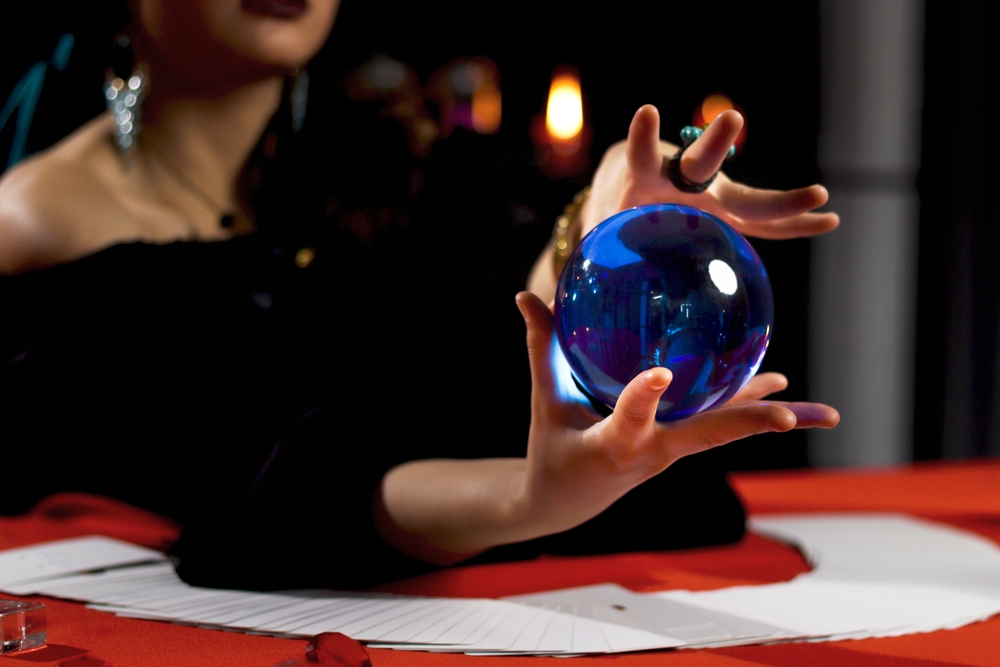
There are several types of ESP, each involving different kinds of extraordinary perception. Let’s explore the three most commonly discussed types of ESP:
1. Telepathy
Telepathy is the ability to transmit information from one person’s mind to another without using any of the five senses. It’s like having a mental conversation without speaking a word.
Forms of Telepathy
- Instinctual Telepathy: This involves a gut feeling or instinct about someone’s thoughts or feelings. It is often experienced between close family members or friends.
- Mental Telepathy: This involves the direct transmission of thoughts or images. It’s like sending and receiving mental pictures or ideas.
- Emotional Telepathy: This focuses on transmitting feelings. For example, you might feel a loved one’s anxiety or joy from a distance.
Telepathy in Everyday Life
Some people claim to have experienced telepathy in everyday situations, such as thinking about someone just before they call or knowing what a person is about to say. These experiences often raise intriguing questions about the potential for mind-to-mind communication.
2. Clairvoyance
Clairvoyance, often referred to as "clear seeing," involves perceiving events or information from a distance. This can mean seeing things that are happening far away or even predicting future events.
Types of Clairvoyance
- Remote Viewing: This type involves seeing events or objects that are far away from the physical location of the observer. It has been studied by both scientists and military agencies.
- Premonitions: These are visions of events that have not yet happened. They can be specific, like seeing a future accident, or more general, like sensing an upcoming change.
- Retrocognition: This allows people to see past events. It’s like looking into history and witnessing past occurrences firsthand.
Practical Examples of Clairvoyance
Clairvoyance has been depicted in numerous cultures and stories, from ancient shamans seeing distant lands to modern psychics helping solve crimes by locating missing persons or objects. These stories fuel the ongoing fascination with clairvoyant abilities.
3. Precognition
Precognition is the ability to foresee future events. People who claim to have this ability might experience visions or strong intuitions about what will happen.
Manifestations of Precognition
- Dreams: Many reports of precognition come from dreams. People might dream about an event before it happens and then see it come true.
- Visions: Some people have waking visions or flashes of future events. These can be spontaneous or occur during meditation.
- Intuitions: Precognition can also manifest as a strong feeling or gut instinct about the future. This is often less visual but equally compelling.
Historical and Cultural Examples of Precognition
Throughout history, many cultures have recorded instances of precognition. From the prophetic dreams of ancient leaders to modern anecdotes of ordinary people predicting significant events, these stories highlight the widespread belief in the power to foresee the future.
Additional Types of ESP
While telepathy, clairvoyance, and precognition are the most commonly discussed types of ESP, there are other forms that also capture the imagination:
- Psychometry: This involves gaining information about an object or its owner through physical contact. For example, someone might hold a piece of jewellery and receive impressions about its history or the person who owns it.
- Mediumship: Mediums claim to communicate with the spirits of the deceased. This type of ESP involves receiving messages from the spirit world, often providing comfort to those who have lost loved ones.
- Astral Projection: This refers to the ability to project your consciousness outside your physical body, often described as an out-of-body experience. Practitioners claim they can travel to different places or realms.
The History of ESP
Extrasensory perception (ESP) has a rich and varied history. Ancient texts and historical records from cultures around the world reveal that people have long been fascinated by the idea of perceiving beyond the known senses. Shamans, oracles, and seers in cultures such as those of Ancient Greece, Egypt, and China were often worshipped for their supposed abilities to access hidden knowledge, communicate with spirits, or foresee future events. These early forms of ESP were deeply intertwined with spiritual and religious practices, and those who claimed to have such abilities often held significant social influence.
In the 19th century, the rise of Spiritualism in the Western world brought renewed attention to phenomena that could be classified as ESP. Spiritualist movements, particularly popular in the United States and Europe, focused on communication with the dead and other forms of paranormal activity. This period saw an increase in public séances, mediumship, and attempts to scientifically investigate these phenomena. Figures like the Fox sisters in America became famous for their claimed abilities to communicate with spirits, sparking both belief and scepticism.
Who Started ESP?
It was in the 20th century that ESP began to attract more rigorous scientific scrutiny. One of the most significant figures in the modern study of ESP was Dr. J.B. Rhine, a psychologist at Duke University. Rhine is often credited with pioneering the field of parapsychology, which seeks to apply scientific methods to the study of paranormal phenomena. He conducted extensive research and experiments to test the validity of ESP phenomena, laying the groundwork for future investigations.
Dr. Rhine's work began in the 1930s, when he and his colleagues at Duke University conducted controlled experiments to test for telepathy, clairvoyance, and precognition. One of their most famous methods involved the use of Zener cards, a deck of 25 cards featuring five different symbols. Participants were asked to guess the symbol on a card being viewed by another person or hidden from view. Rhine's experiments produced results that he believed indicated the presence of ESP, although these findings were met with both interest and scepticism from the wider scientific community.
ESP in Psychology

ESP has sparked considerable debate among psychologists. While many remain sceptical due to the difficulty in replicating ESP phenomena under controlled conditions, and the lack of consistent empirical evidence, a dedicated group of researchers persists in exploring its potential. They employ rigorous scientific methods to test and validate ESP claims, often using sophisticated statistical analyses. Some studies have yielded intriguing results that suggest deviations from chance, warranting further investigation.
Examples of ESP in Psychology
Throughout history, there have been many anecdotes and claims of ESP experiences. Some studies have reported results that suggest the possibility of ESP, though these findings are frequently contentious and subject to intense scrutiny. For instance, some experiments using random number generators and remote viewing have yielded results that appear to deviate from chance expectations. Some argue that such findings warrant further investigation and could point to unexplored aspects of human consciousness and perception.
Approaches to Studying ESP
Researchers use various approaches to study ESP, including controlled experiments, case studies, and statistical analyses. Each method aims to uncover the truth behind these extraordinary claims.
- Experimental Research: Conducting controlled experiments to test ESP abilities.
- Case Studies: Analysing detailed accounts of people who claim to have ESP.
- Statistical Analysis: Using statistical methods to evaluate the probability of ESP occurrences.
Frequently Asked Questions About ESP
What are the key differences between ESP and the five traditional senses?
The five traditional senses—sight, hearing, touch, taste, and smell—rely on specific sensory organs that detect physical stimuli and transmit this information to the brain. ESP, on the other hand, is proposed to involve perceiving information without any physical interaction or the use of these sensory organs. This distinction is what makes ESP so intriguing and controversial, as it suggests a form of perception that operates independently of the established sensory pathways.
Can ESP be developed or enhanced through practice?
Some people believe that certain techniques and practices can enhance extrasensory abilities. These might include meditation, mindfulness, and exercises designed to improve intuition and mental focus. Supporters argue that, like any skill, ESP can be honed through regular practice and a receptive mindset.
Are there any famous cases or individuals associated with ESP?
Several people have gained notoriety for their claimed ESP abilities. For instance, Edgar Cayce, known as the "Sleeping Prophet," was famous for his alleged clairvoyant abilities and healing predictions. Uri Geller, an Israeli illusionist, gained fame for his supposed telepathic and psychokinetic abilities, often bending spoons with his mind.
How do cultural and social factors influence beliefs in ESP?
Beliefs in ESP are often shaped by cultural and social contexts. In some cultures, belief in ESP and other paranormal phenomena is widespread and deeply ingrained, often tied to spiritual or religious practices. Social factors, such as media representation and personal anecdotes, also play a role in shaping perceptions of ESP. Stories of accurate predictions and mind-to-mind communication can reinforce beliefs, while cultural acceptance can make people more open to reporting their own ESP experiences.
Is there any relationship between ESP and mental health?
The relationship between ESP and mental health is a complex and nuanced topic. Some researchers have explored whether people who report ESP experiences might be more susceptible to certain psychological conditions, such as dissociation or high levels of suggestibility. Others suggest that having ESP abilities could contribute to a positive sense of identity and purpose.
Does ESP Still Exist?
The question of whether ESP exists is still hotly debated. While many studies have failed to provide conclusive evidence, the persistent interest and anecdotal reports keep the possibility open for further exploration.
How Do You Tell if You Have ESP?
Determining if you have ESP can be challenging due to the subjective nature of the experiences. Some suggest keeping a journal of intuitive experiences and comparing them with real events to see if patterns emerge.
Study Psychic Development With Centre of Excellence
If you’re curious about developing your own intuitive skills, we offer an informative Psychic Development Diploma Course at a special discounted price of £29. This course provides the tools and knowledge you need to safely explore and enhance your psychic abilities.
